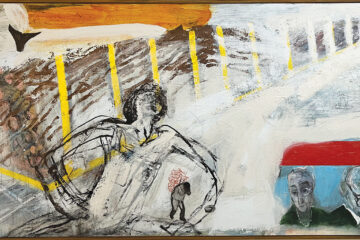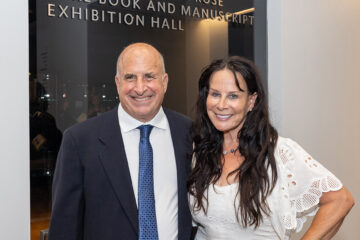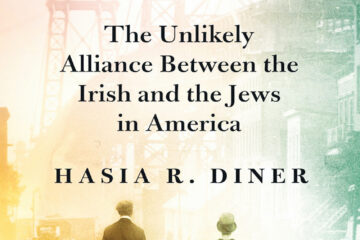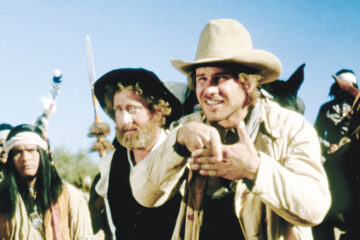The Catskills opens JCC Film Fest May 30
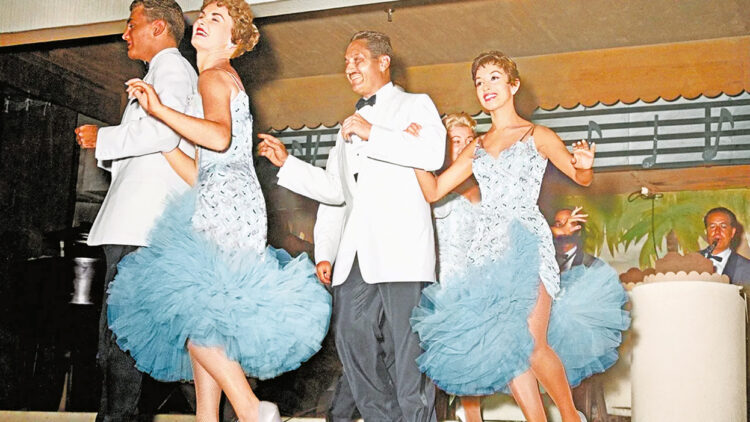
Documentary celebrates lost world more marvelous than Mrs. Maisel ever knew
By Dan Pine, J.
The resorts are gone now, either demolished or rotting in the humid air of upstate New York. But for nearly a century, the Catskill Mountains served as a lush playground for America’s upwardly mobile Jews.
Though it slathers on the nostalgia thick as sour cream on a blintz, Lex Gillespie’s 2023 documentary, The Catskills, affectionately recounts the history of this iconic time and place.
Ultimately, the film — which opens the Dayton JCC Film Festival May 30 at University of Dayton’s new Roger Glass Center for the Arts — reveals a Borscht Belt more marvelous than Mrs. Maisel ever knew.
Gillespie draws on archival footage, photos, home movies, and contemporary interviews with former guests and employees of the resorts that dotted the woodlands up Highway 17. They collectively tell the story of East Coast Jews, many a mere generation removed from the shtetl, determined to live the American dream.
Beginning around 1909, Jews began buying land in the Catskills, some to open chicken farms. Others later built modest hotels and bungalows for compatriots escaping the sweltering summer heat of New York City. Over time, resorts such as Grossinger’s and the Concord became prime destinations for Jews, who were otherwise forbidden to enter resort hotels restricted to White Christians.
These family-run resorts in the Catskills became pleasure domes, providing everything for the rich and the not-so-rich: swimming pools, rumba lessons, nightly shows, and comedians busy inventing the nascent art of stand-up.
And the food! Piles of stuffed cabbage, chopped liver, and enough brisket to clog every artery between Liberty and the Lower East Side. The buffet symbolized a thriving Jewish population enjoying the bounty of the American century.
The Catskills arrives at a moment of peak interest in the era. The Catskills Borscht Belt Museum is set to open in Ellenville, N.Y. in 2025.
Meanwhile, the film dwells on Jennie Grossinger (1892-1972), resort co-owner and hostess with the mostest. She and her husband, Harry, bought a few acres in 1914 and began renting out lodgings around that time. Within a few years, they had 63 acres of prime land and became ground zero for Catskills luxury. Jennie was a friend to the stars of sports and entertainment, including baseball legend Jackie Robinson, whom she publicly embraced. That progressive impulse was shared at Kutsher’s, which hired a teenage Wilt Chamberlain one summer.
We also meet Arthur Winarick, a one-time barber who made a fortune with his hair tonic. He opened the Concord Resort Hotel, which out-fancy-schmancied Grossinger’s with its three golf courses, two nightclubs, a skating rink, and an indoor pool.
The film also devotes attention to the Borscht Belt comedians who went on to fame. Catskills alumni like Henny Youngman, Danny Kaye, Buddy Hackett, Phil Silvers, Milton Berle, and Jackie Mason not only invented stand-up comedy, they imprinted on the art a permanent Jewish sensibility that suffuses American humor to this day.
One exceptionally odd sequence describes the annual “mock marriage” ceremony held at the Gold and Rados bungalow colony, in which the men dressed as women, the women dressed as men, and all stood under the chupah while a fake rabbi officiated, clutching a Playboy magazine instead of a prayer book.
The surprising star of The Catskills is dance teacher and firecracker Jackie Horner, who in her late 80s was still teaching the cha-cha and merengue. Horner, who died in 2020, started at Kutsher’s resort in 1954 and never stopped teaching dance (even though Kutsher’s closed for good in 2013). Clearly, she had the time of her life embodying that old Catskills magic.
Gillespie explains the slow death of the Catskill resorts as the consequence of a rapidly changing society. In many ways, the Borscht Belt was a victim of its guests’ own success.
The Civil Rights Act of 1964 outlawed discrimination, so that Jews could suddenly stay anywhere. Affordable air travel opened up new vacation options, and the introduction of air conditioning meant families could stay cool in their Brooklyn apartments during the summer months.
As Dirty Dancing screenwriter Eleanor Bergstein says in the film, “People just stopped coming.”
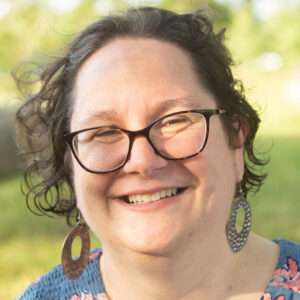
But for several glorious decades, Jews flexed their freedom and mounting wealth in the mountain air of what was known as the Jewish Alps. The Catskills brings it all back, even for those who never set foot there.
Attending the Dayton screening will be University of Cincinnati Judaic Studies Chair Jenny Caplan, author of Funny, You Don’t Look Funny: Judaism and Humor from the Silent Generation to Millennials. Caplan, who has family ties to Dayton, was interviewed for The Catskills documentary. She’ll answer questions after the film.
JCC Film Fest opens with The Catskills, 7 p.m., Thursday, May 30 at the University of Dayton’s new Roger Glass Center for the Arts, 29 Creative Way, Dayton. After the movie, participants will hear from Univ. of Cincinnati Judaic Studies Chair Jenny Caplan. Tickets are $18 and include a 6:30 p.m. reception. Purchase tickets here.
To read the complete May 2024 Dayton Jewish Observer, click here.


